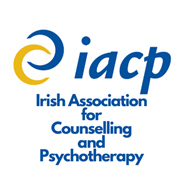 The British Psychological Society have issued the following helpful and practical advice to Parents about talking to children about Coronavirus.
The British Psychological Society have issued the following helpful and practical advice to Parents about talking to children about Coronavirus.
1. It is good to talk: Children will have heard about Coronavirus and likely noticed changes around them (such as people wearing face masks). It is important they feel comfortable talking to you about Coronavirus as you will be the best source of information and reassurance for them. It’s also likely they will talk to their friends or other children, which can involve imagination and misinformation. So having the chance to check-in with you is even more helpful.
2. Be truthful but remember your child’s age: It is better for children to take an honest and accurate approach – give them factual information, but adjust the amount and detail to fit their age. For example, you might say ‘we don’t yet have a vaccination for Coronavirus, but doctors are working very hard on it’ or ‘a lot of people might get sick, but normally it is like a cold or flu and they get better’. Younger children might understand a cartoon or picture better. We also recommend that adults watch news programmes and then filter this information to their child in a developmentally appropriate way.
3. Allow children to ask questions: It is natural that children will have questions, and likely worries, about Coronavirus. Giving them the space to ask these questions and have answers is a good way to alleviate anxiety. Again, try to be honest in your responses – it is ok to say you don’t know. At the moment, there are questions we don’t have answers to about Coronavirus – you can explain this to your child and add in information about what people are doing to try to answer these questions. Maybe your child has an idea too – let them tell you or draw them.
4. Try to manage your own worries: Uncertainty can make all of us feel anxious or worried. Identify other adults you can talk to about your own worries and questions. What things usually help to make you feel a bit calmer? If you are at home, music, breathing and relaxation techniques, distraction (such as watching something funny), and time with family members or pets can all help. Talk to your children when you feel calm – it will reassure them.
5. Give practical guidance: Remind your child of the most important things they can do to stay healthy – washing their hands and the ‘catch it, bin it, kill it’ advice for coughs and sneezes. Help your child practise and increase their motivation for keeping going (maybe thinking of a song they want to sing while washing their hands).
Download PDF (from the British Psychological Society)





